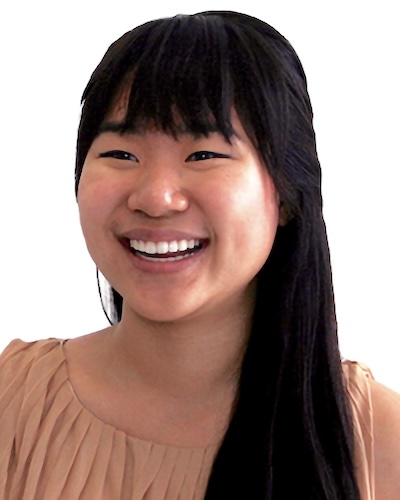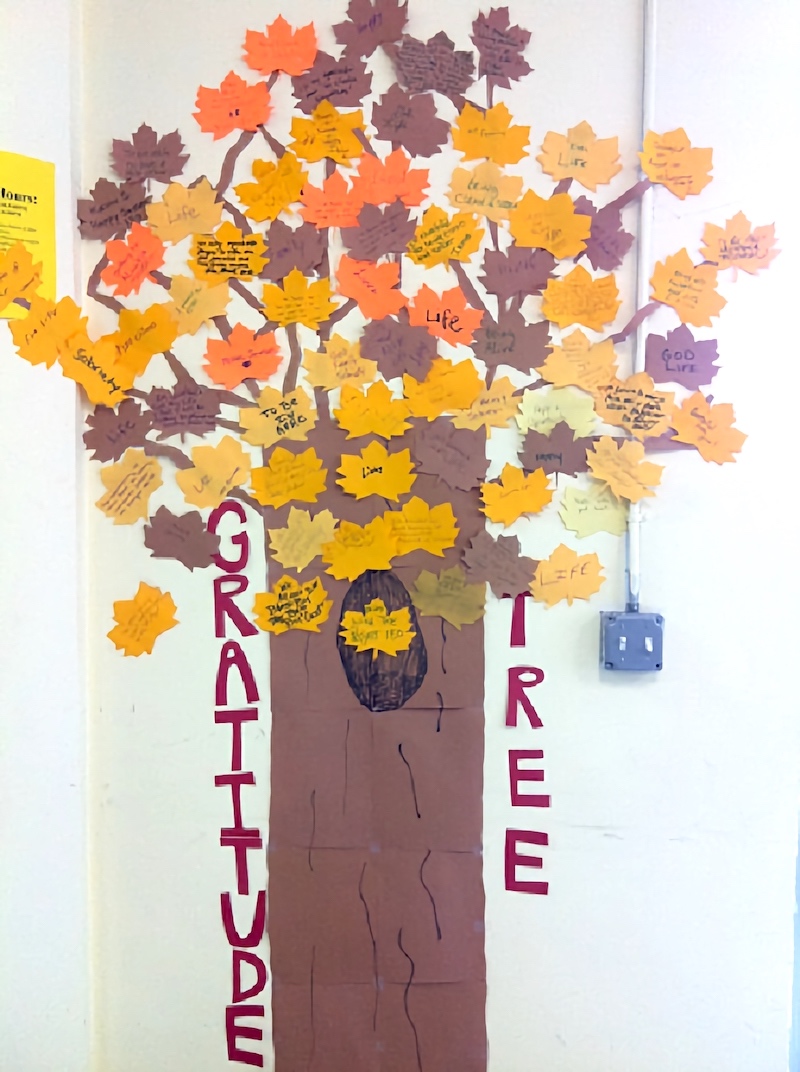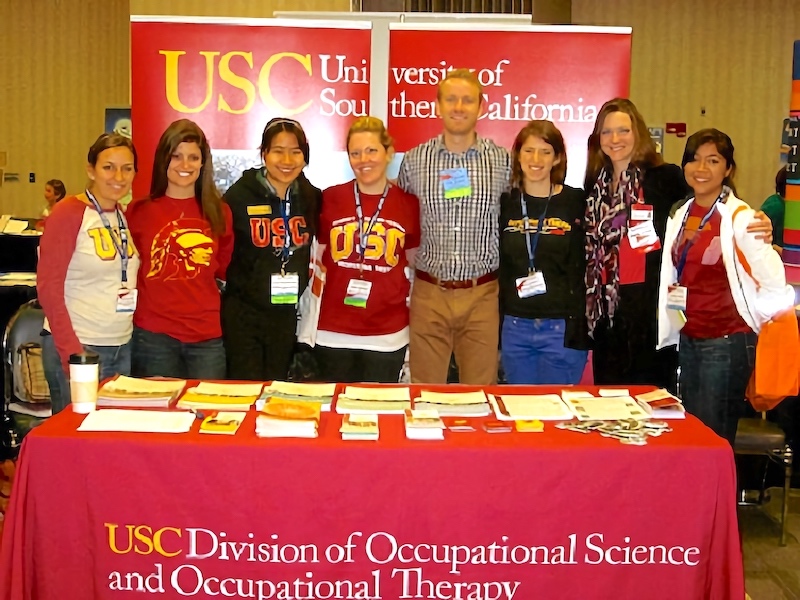Student Blog
Alisa

Goals for winter break ⟩
December 17, 2012, by Alisa
I’m done with finals! Woohoo! I’m looking forward to relaxing more over winter break.
I’ll be doing a stay-cation this break, and here are some of my goals:
- Decorate the Christmas tree (I just did last night!)
- Learn how to play a ukulele (I purchased one over Black Friday weekend!)
- Learn how to juggle (a friend told me I have potential 😉)
- Master the Gangnam-style dance
- Read Seven Habits of Highly Effective People
- Do more yoga
These goals should keep me busy, and I’ll keep in touch by blogging too. Do you have plans for the holidays?

It’s beginning to look and feel like Christmas!
⋯

The Road to Centennial Vision: USC–Thailand Collaborations ⟩
December 17, 2012, by Alisa
Classes Externships International
I recently had a poster presentation for my community programming class! It was super exciting to be able to see the finish products of our semester long work. Throughout the project, I learned that although working independent has its perks and glory, it could be very hard to motivate oneself to do project. No joke. Even though I felt comfortable asking my professor any questions I had, it would have been nice to have a partner whom I could bounce ideas with. So, I’ve learned my lesson, but in case you’re wondering about my project, which I’m really excited about. Here is a little synopsis of it.
Title: The Road to Centennial Vision: USC–Thailand Collaborations
Goal: My goal for this potential collaboration is to help USC occupational therapy students and faculty realize the American Occupational Therapy Association Centennial Vision through expanding international experiences and collaborations in ongoing and future projects in order to become more “globally connected.”
Objectives:
- To foster a relationship between USC OT Division and Thai universities and organizations
- To address a lack of resources available for students and faculty interested in getting international experience in Thailand
- To provide unique opportunities for collaboration in future projects and research
- To offer a reference by those interested in joining or creating new programs in Thailand so that they know what services are already being provided, what needs remain, and what possibilities for collaborations exist
- To foster a better understanding of the Thai culture and way of life and promote tourism
One potential collaboration I see happening is with the Thai Elephant-Assisted Therapy Project. Here’s a little more about the project:
From the research that I have gathered, a unique opportunity for collaboration is with the Thai Elephant-Assisted Therapy Project (TETP): an innovative intervention for individuals with autism. The TETP was started in 2007 with a two-fold intention: to sustain conservation and welfare of elephants and address autism. The program has provided a binding force that allows for collaboration across disciplines from researchers, practitioners, and students. The research studies have collected data from participants ranging from 11-19 years old and only female elephants were used. Animals that have been known to provide such therapeutic benefits include horses (hippotherapy) and dogs. Young elephants are used in the program since they tend to be more playful, which is considered a plus when working with children with ASD since they tend to have difficulties engaging in play. According to Zailani (2012), the activities incorporated in the program are preparation (e.g., money management when buying snacks for elephants), sensory integration (e.g., singing the elephant song and riding), social skills (e.g., with each other and elephants), and daily living skills (e.g., bathing and grooming). This program is available for free for children with ASD and has been researched by Dr. Nuntanee Satiansukpon, at Chiang Mai University.
I’m planning to do my leadership capstone in March in Thailand and would love to be able to see this in action. Stay tuned!
⋯

Last day of fieldwork ⟩
November 27, 2012, by Alisa
I had just finished my last Level I fieldwork. The last day we bought the staff donuts, and all was good. As I reflect on my fieldwork experience, some of the highlights were helping to create a gratitude tree and helping clients and staff to reflect on what they are thankful, coordinating The Price is Right trip as a fundraiser for the organization, and helping clients create resume. There is no doubt that a resume is important; we are often judged by what’s on paper even before we get a chance at an interview. I feel that I’ve empowered my clients to believe in themselves, identify their strengths and work experience, and pretty much sell themselves on paper. Some of clients that I worked with told me: “I’m going to go home and frame the resume” and “I want ten copies of the resume, and I’m gonna post them up everywhere.” I could tell that I’ve helped them achieve a certain level of satisfaction and to be able to have a physical copy of our work gave it more meaning to them. Their hard work have amounted to something tangible, my present to them.
At first I wasn’t sure where I would fit it to the setting since there are no occupational therapists at the site, but as time passed by, I learned to be helpful and take more initiative. I didn’t mind being a generalist, helping out around the office and mingling with clients in the lounge. There’s something about hearing people stories that fascinate me. I am helping them engage in occupational storytelling, reflecting on their past and current occupations, in order to better understand and help them create a new occupational identity. Specifically to this site, clients are working toward education/employment. Occupational therapists can work with this population in order to facilitate that, and I feel that I’ve learned a lot from this site. It has made me better understand the client population, who has a diagnosis of mental health disorder and substance abuse disorder, and feel more equipped to work with them. I could see myself working in mental health. What about you? Which population do you see yourself working with?

Gratitude tree
⋯

Alisa Goes to Ohio ⟩
November 27, 2012, by Alisa
I don’t get to travel a lot, but I’ve gotten the opportunity to travel across the country a few weeks ago! The Division generously supported a selected number of students to attend the AOTA/NBCOT Student Conclave in Ohio, Columbus in November. I got to learn about the culture and realized the power of OTs. We are unstoppable! Being at the same place as 500 other OT/OTA students provided a unique opportunity to exchange knowledge and learn from each other. As a student ambassador, I also tabled at the USC booth and met many students who expressed interest in doing the MA/OTD/PHD programs. I also met an USC OT alum who graduated in the ‘70s and is now a professor at another university. It was also encouraging to see students in their undergraduate programs just starting to think about graduate school.
I realized that wherever I go, education is always going to be part of what I do. The conference area had businesses that are open to non-conference goers too. I met a group of guys at Einstein Bagels who thought that it was a women’s conference. I chuckled and corrected that this is an occupational therapy conference. He looked at me and said, “What’s that?” I then explained to him, “Occupation as in how you occupy your time. How do you like to occupy your time?” He said he fights, and he is here visiting Columbus to support his friend in a fight competition. I educated him by saying, “Imagine one day if you can’t fight anymore, you might see an occupational therapist. Occupational therapists can help you get back to what you’re doing before and live life to the fullest.” He then replied, “That’s very specific.” We exchanged a few more remarks and parted ways, but it made me realize that wherever I go, I take the opportunity to educate people about the profession. I believe in the profession, that we can make a difference in people’s lives and improve their quality of life. It is then also our responsibility to spread awareness about occupational therapy. Let’s all work toward the Centennial Vision to help make occupational therapy “widely recognized” and “globally connected.” One way to achieve it is by talking to the person next to you while waiting in line at the grocery store, the bus stop, or a coffee shop. Who knows where the conversation could lead you? What has been your experience with educating people about occupational therapy?

Student conclave | Photo by Jen Waters
⋯

NAMI ⟩
November 1, 2012, by Alisa
Classes Getting Involved What are OS/OT?
One of our assignments for my class was to attend a National Alliance on Mental Illness (NAMI) meeting. I attended a family-to-family support group on Monday, and to be honest, it was a truly eye-opening experience to be able to hear about the families’ lived experience. My attendance at the meeting confirmed my desire to work in the mental health setting. Some of the families in attendance have family members such as sons and daughters, spouses, and siblings who are affected by mental conditions. These conditions include borderline personality disorder, schizophrenia, anxiety, and depression.
I thought the set-up of the meeting worked well where everyone said his or her name and the person in their family living with a mental condition. After the check-in, the two facilitators attempted to problem solve urgent issues first, then they tried to problem solve other issues together as a group as time permitted. The facilitators stated that it was especially hard to know that what we have planned for our family members might not turn out to be exactly as planned. Everyone has come a long way, and by showing up to the meeting is a step toward change. One member shared that how a mental condition affects marriage and now has affected her son. It was comforting for me to learn that despite living with a mental condition, it is still possible to live life to the fullest when paired with medications and therapy. Sometimes it is a “difference between night and day” as one member stated. Some of their loved ones have graduated from universities, but they are now struggling with keeping a job. One member shared that her sibling wanted to get more involved and give back to the community and share what it is like to live with a mental condition and lupus.
As I experienced the meeting, I could empathize with some of the family members whose siblings are living with a mental condition. I felt that the families at the meeting cared about their loved ones, and I have found a place where it is fine to talk about our lived experiences. Although I have chosen not to share about my experiences since I wanted to observe at my first time there, I could see myself returning to the group and learning more from the families there. It has provided me to a valuable learning experience indeed. Some of the group members stated that it was important for them to attend the group because it meant a lot for their loved ones. Some felt that violence was an issue while others attend because they want to find new ways of coping. Some are still going to the grieving process while others have come to terms with their loved ones. All in all, the meeting provided a safe space for anyone to share and learn, and for that, I am grateful that such amazing organizations exist. Go NAMI!
⋯





